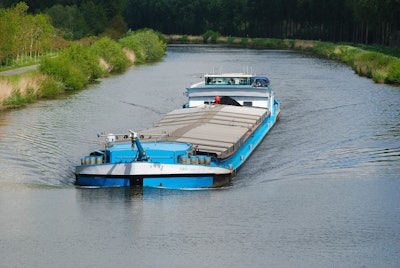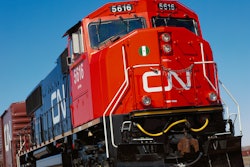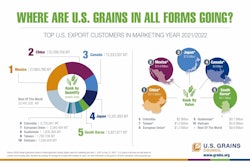
Low Mississippi River levels continue to impact grain shipping as some Cargill grain terminals on the river now have stopped taking corn and soybeans.
According to reports, Cargills' facilities in Hickman, Kentucky, and Keithsburg, Illinois, have both posted on their websites that they have stopped taking deliveries this week.
"We are full on corn and YSB (yellow soybeans)," noted the Hickman facility's website. "Will not be taking until river levels change. Hickman Harbor was closed due to low water. We are filling our remaining space. Customers can expect slower unload times and we apologize for any disruptions this causes our producers."
Dry fall weather impacts river levels
Dry fall weather has been impacting the Mississippi River this harvest season. The river has reached historically low levels severely disrupting grain movement along the waterway.
"Serious concerns” over critically low water levels in the Mississippi River system led port authorities to limit vessel drafts near a key export hub, potentially adding a further headache for shippers already contending with delays and increasing costs.
Mike Steenhoek, executive director of the Soy Transportation Coalition, sent a river update on Wednesday, stating that the conditions of the inland waterway system remain "very concerning."
"Barge transportation is essential for connecting U.S. soybean farmers with international customers," noted Steenhoek.
Barge rates on the rise again
According to the USDA Grain Transportation Report (GTR) for the week of October 25, the St. Louis barge spot rate increased almost 22% from last week to $88.46/ton.
This rate is lower than the all-time peak of $105.85/ton for the week of October 11.
Because of low water levels on the Mississippi River System (MRS), barge companies have little capacity in the spot market as they struggle to meet current commitments.
Future rates are also higher than normal: the current low barge availability, combined with new export sales of soybeans, have spurred demand for barges in November, December and early next year.
- St. Louis 1-month-rate (for November) reached $58.61/ton, 384% higher than last year and 439% higher than the 5-year average
- St. Louis 3-month-rate (for January) reached $33.99/ton, 265% higher than last year and 270% higher than the 5-year average
In the near term, barge challenges and draft restrictions are likely to continue, said the GTR. By mid-November, however, the slightly above-normal rain forecast may begin to provide relief and help stabilize some portions of the MRS.



















